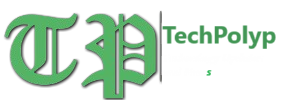As we step further into 2025, the landscape of artificial intelligence (AI) regulation is transforming. With technological advancements happening at breakneck speed, governments worldwide are scrambling to establish frameworks to keep pace. In particular, the U.S., European Union (EU), and China are positioned as the major global players in shaping the future of AI, each with differing approaches and motivations.
AI Regulation in the U.S.: A Shift Under Trump and Musk’s Influence
In the U.S., AI regulation is poised for a significant shift, especially with Donald Trump back in office. His administration is expected to prioritize economic growth, favoring minimal government intervention in the tech sector. However, his relationship with Elon Musk, a key figure in the AI world, could influence policy decisions significantly. Musk’s vision for AI includes both caution and innovation, with his companies actively involved in developing cutting-edge technologies like autonomous vehicles and neural interfaces.
While Trump may adopt a more laissez-faire stance, his policies will need to balance economic interests with the growing need for ethical AI guidelines. The U.S. will likely face pressure to regulate AI more tightly, especially as global competitors such as China and the EU move forward with stricter rules.
EU’s AI Act: A Model for Stringent Regulation
Across the Atlantic, the European Union is pushing forward with its AI Act, a regulation that aims to set global standards for ethical AI development and use. This act categorizes AI systems based on risk levels, from minimal to high risk, and outlines strict guidelines for transparency, accountability, and safety. The EU’s regulatory framework is expected to put significant pressure on U.S. tech companies that dominate the global AI market, forcing them to comply with European standards if they want to continue doing business in the region.
The European model is an effort to strike a balance between fostering innovation and protecting citizens from the potential harms of AI. The EU is also seeking to establish itself as the global leader in AI ethics and safety, a position that could influence how other countries approach the regulation of artificial intelligence.
China’s Competitive Push for AI Dominance
Meanwhile, China is emerging as a formidable competitor in the global AI race. The Chinese government has prioritized AI development in its long-term strategy, aiming to become the global leader in artificial intelligence by 2030. China’s approach to AI regulation is more centralized, with the government playing a direct role in both fostering innovation and imposing restrictions. While this centralization allows for rapid deployment of AI technologies, it also raises concerns about privacy, surveillance, and state control over AI systems.
As China continues to push the boundaries of AI in industries such as facial recognition, machine learning, and robotics, the global community is watching closely. The U.S. and the EU may need to develop strategies to counter China’s growing influence, especially in sectors where AI has the potential to reshape entire industries.
Global Tensions and Future Prospects
The competition among these three global giants—the U.S., EU, and China—will shape the future of AI regulation for years to come. While the U.S. may prioritize innovation and economic growth, the EU is focusing on ethical considerations, and China is driving technological advancements. The balance between regulation, innovation, and global competitiveness will be critical in determining how AI evolves in the coming decade.
As AI continues to advance, the policies and frameworks established in 2025 will lay the foundation for how we navigate the ethical, economic, and societal challenges that arise. The global race for AI dominance is just beginning, and the decisions made now will shape the future of humanity’s relationship with artificial intelligence.




